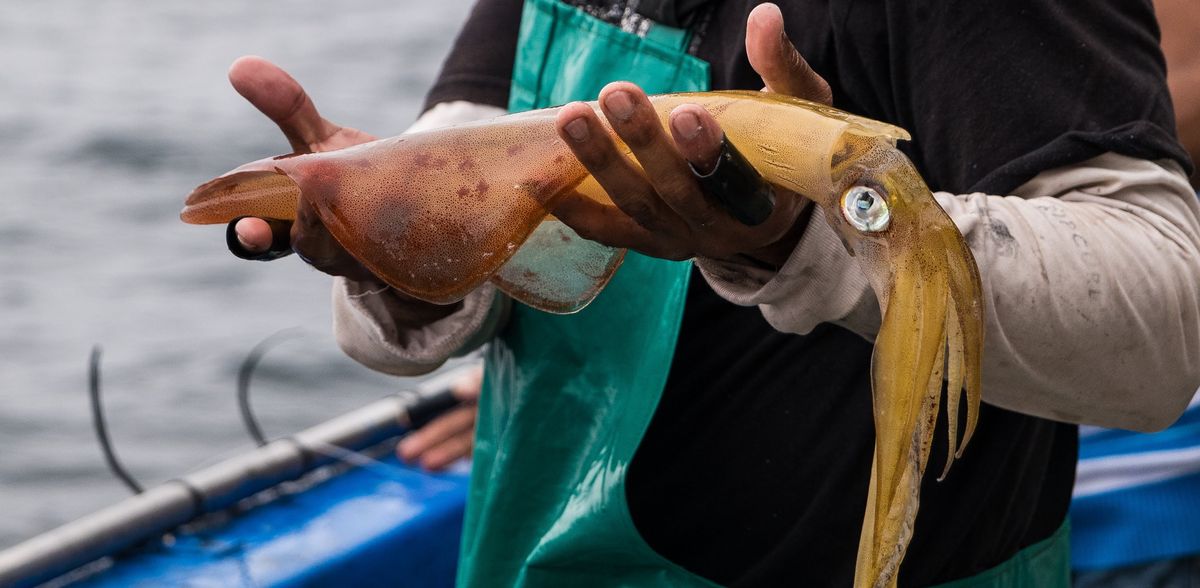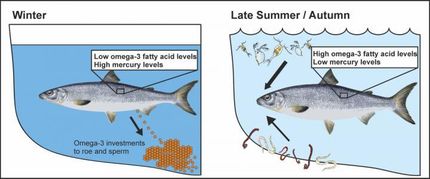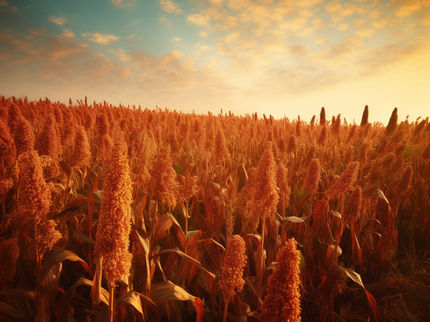International Day of the Sea
Blue foods the new superfood of the world population?
Advertisement
Around 8.1 billion people currently live on Earth. By 2050, this figure will probably be around 10 billion. We need to address the question of how our planet can feed all these people, because food production on land is reaching its spatial and ecological limits. We need to rethink the issue of feeding the world's population. The United Nations is calling for greater focus on the oceans. It's about blue foods that could be humanity's superfood.
1. there are thousands of edible alternatives from the sea and fresh water
Worldwide, there are more than 2,000 wild-caught and another 600 aquacultured fish and seafood species for human consumption. In Germany, however, we still have little flexibility when it comes to blue foods: three-quarters of Germany's fish consumption is accounted for by just six different species - led by salmon, Alaska pollock and tuna.
2. "Super seafood" is full of nutrients
Fish and seafood contain particularly high levels of essential nutrients, such as omega-3 fatty acids, iron or vitamins A and B12. 100 grams of wild salmon or herring can provide us with more essential nutrients than the same amount of nuts, seeds, grains, meat or leafy vegetables.
3. wild fish can score ecologically
Catching wild fish has many ecological advantages over most other forms of food production: no land consumption, no deforestation of rainforests or mangroves, no water consumption, no need for feed, no use of pesticides, industrial fertilizers or antibiotics.
4. eating fish instead of meat can help reduce CO2 emissions.
The carbon footprint of wild fish is ten times less than that of red meat and also significantly less than that of cheese or chicken. Some fish and seafood, such as herring, mackerel and sprat, even have a smaller carbon footprint than rice and corn, while being among the most nutritious of fish.
5. fish is more than a food: millions of people make their living from fishing.
600 million people earn their living from fish. More than half of those employed in the fishing sector are women. In many coastal communities around the globe, fishing has deep social, economic and cultural roots.
6. fish is the world's most traded food.
Fish and seafood are important to many economies. The annual value of international seafood trade is currently $151 billion - more than five times the trade value of coffee and about $30 billion more than the trade value of sugar.
7. fish is part of many people's cultural heritage.
Christians traditionally eat fish on Good Friday, while in Judaism fish is a symbol of fertility and good luck and is eaten at the New Year. According to the Koran, fish is a symbol of eternal life and knowledge, and fish offerings were made to the gods in ancient Mesopotamia.
Incidentally, the first scientifically documented consumption of aquatic animals by humans dates back 1.95 million years and was discovered in Kenya.
8. we need fish to feed the 10 billion
By 2050, nearly 10 billion people are expected to live on Earth. To feed the growing world population, we also need food from the sea! Global demand for fish and seafood is expected to double by 2050.
9. we can only catch more if we fish sustainably.
According to the UN World Food Organization (FAO), one third of all global fish stocks are currently overfished. Ending this overfishing would have a positive impact on marine biodiversity - while also increasing annual catches by 16 million metric tons - enough to meet the annual protein needs of an additional 72 million people. Because: Sustainably fished stocks have higher yields than overfished stocks!
10. your deal with the sea
Make sure you make a sustainable choice when buying fish! Because if you decide to eat only sustainable fish, you contribute to the preservation of healthy fish stocks and intact oceans. You can recognize sustainable wild fish by the blue MSC seal.
On Thursday, June 8, 2023, the United Nations will mark the 15th International Day of the Sea. The MSC supports the UN in the fight for the protection and sustainable use of our oceans.
Note: This article has been translated using a computer system without human intervention. LUMITOS offers these automatic translations to present a wider range of current news. Since this article has been translated with automatic translation, it is possible that it contains errors in vocabulary, syntax or grammar. The original article in German can be found here.


























































